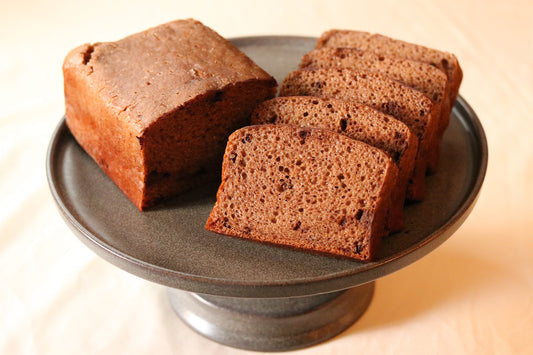Is going gluten-free good for your mental health? Here's why

The impact of gluten on mental health

The relationship between gluten and the brain
Effects of gluten-derived opioid peptides
During the digestion of gluten, substances called opioid peptides are produced. These opioid peptides are known to act on opioid receptors in the brain, producing pain relief and a sense of euphoria . However, excessive opioid peptides can disrupt the brain's reward system and increase the risk of addiction and depression . There are concerns that chronic consumption of foods high in gluten can lead to the accumulation of opioid peptides, which can have a negative impact on mental health.
Actions on neurotransmitters such as serotonin
Gluten also affects the balance of neurotransmitters in the brain. In particular, serotonin , a neurotransmitter involved in mood stability and feelings of happiness, can be disrupted by excessive gluten intake.
The risk of depression and anxiety disorders increases due to the inhibition of tryptophan absorption, which is necessary for the synthesis of serotonin, and the reduced sensitivity of serotonin receptors. It also disrupts the balance of other neurotransmitters, such as dopamine and norepinephrine, which can have a negative impact on mental health.
The link between gluten and inflammation

Gluten is known to cause an inflammatory response in the body. In people with gluten sensitivity or intolerance, consuming gluten triggers intestinal inflammation and increases intestinal permeability. This condition is called "leaky gut syndrome," and harmful substances in the intestines flow into the bloodstream, causing an inflammatory response throughout the body.
An increase in substances called inflammatory cytokines can also cause inflammation in the brain , negatively impacting mental health. It has been linked to depression, anxiety disorders, and declines in cognitive function. Furthermore, inflammation can affect the close relationship between the gut and brain, known as the gut-brain axis , which may lead to a deterioration in mental health.
The relationship between inflammatory cytokines and mental health
The inflammatory response caused by gluten promotes the production of pro-inflammatory cytokines , such as interleukin-6 (IL-6) and tumor necrosis factor-α (TNF-α), which mediate the inflammatory response in the body.
These cytokines pass through the blood-brain barrier and reach the brain , affecting the function of nerve cells. Specifically, they inhibit the synthesis and release of neurotransmitters and cause damage and death of nerve cells, leading to a deterioration in mental health . They have been linked to depression, anxiety disorders, and cognitive decline, and regulating inflammatory cytokines is thought to be important for improving mental health.
The gut-brain axis and the effects of gluten
The gut and brain are closely connected through a process known as the gut-brain axis . Changes in the intestinal environment affect brain function, and conversely, the state of the brain affects the health of the gut. Gluten disrupts the intestinal environment, adversely affecting this gut-brain axis.
Specifically, intestinal inflammation and increased permeability caused by gluten disrupt the balance of the intestinal flora, allowing harmful substances to enter the body. These harmful substances reach the brain via the blood, causing brain inflammation and imbalances in neurotransmitters, which ultimately leads to a deterioration in mental health. In order to maintain a healthy gut-brain axis, it is believed that it is important to limit gluten intake and improve the intestinal environment.
The relationship between gluten sensitivity and mental illness

Relationship with depression and anxiety disorders
Gluten sensitivity is known to increase the risk of depression and anxiety disorders . In people with gluten sensitivity or intolerance, consuming gluten induces intestinal inflammation and increased permeability. These changes promote the production of inflammatory cytokines , leading to brain inflammation and neurotransmitter imbalance.
In particular, a decrease in the function of neurotransmitters such as serotonin and dopamine leads to increased feelings of depression and anxiety . In fact, it has been reported that people with gluten sensitivity have a higher prevalence of depression and anxiety disorders, and some research has shown that a gluten-free diet can improve these symptoms.
Association with schizophrenia and autism spectrum disorder
Gluten sensitivity has also been linked to schizophrenia and autism spectrum disorder (ASD), which are known to be associated with abnormalities in brain development and function and neurotransmitter balance.
Gluten may increase the risk of these diseases by inhibiting the activation of glial cells , which play an important role in brain development and function. It is also thought that gluten-induced intestinal inflammation and increased permeability may trigger an autoimmune response , affecting brain function. In fact, a high rate of gluten sensitivity has been reported in patients with schizophrenia and ASD, and there have been cases where symptoms have improved with a gluten-free diet. However, further research is needed to determine the relationship between these diseases and gluten.
Improved mental health through gluten-free eating

Expected benefits of gluten-free diet
Mood stability and emotional control
A gluten-free diet is thought to be effective in stabilizing mood and controlling emotions . Gluten consumption can disrupt the balance of neurotransmitters in the brain, reducing the function of serotonin and dopamine.
These neurotransmitters play an important role in regulating mood and feelings of happiness , so a decline in their function increases the risk of depression and anxiety disorders. By following a gluten-free diet, the balance of these neurotransmitters improves, making it easier to stabilize mood and control emotions . In fact, there are many reports that a gluten-free diet improves the symptoms of depression and anxiety disorders.
Improved concentration and memory
A gluten-free diet may also improve concentration and memory . Gluten is known to cause inflammation in the brain, which can impair nerve cell function and negatively impact cognitive function.
Specifically, symptoms may include decreased attention, memory, and thinking ability . It is believed that a gluten-free diet can calm brain inflammation and restore nerve cell function, improving concentration and memory . A gluten-free diet also contributes to stabilizing blood sugar levels, improving energy supply to the brain and leading to improved cognitive function.
Gluten-free brain changes
A gluten-free diet has also been suggested to alter brain structure and function . Gluten can cause inflammation in the brain, leading to damage and death of nerve cells. This inflammation is known to affect brain areas involved in memory and emotion, such as the hippocampus and prefrontal cortex . It is believed that following a gluten-free diet reduces inflammation in these brain areas and promotes the regeneration and repair of nerve cells .
A gluten-free diet can also be expected to improve brain function by balancing neurotransmitters in the brain. Neurotransmitters such as serotonin and dopamine are involved in mood regulation and the reward system , so improving their balance leads to improved mental health. Furthermore, a gluten-free diet is thought to contribute to maintaining brain health by optimizing the brain's supply of nutrients.
Calming down brain inflammation
A gluten-free diet may help reduce brain inflammation . Gluten promotes the production of inflammatory cytokines in the brain, which can lead to neuronal damage and death. This inflammation affects areas of the brain involved in memory and emotion , leading to poor mental health.
It is believed that following a gluten-free diet reduces the level of inflammatory cytokines in the brain, promoting the regeneration and repair of nerve cells . In fact, some research reports have shown that a gluten-free diet reduces inflammatory markers in the brain. Reducing inflammation in the brain leads to improved mental health, such as improved memory and easier emotional control.
Improved neurotransmitter balance
A gluten-free diet is also known to balance neurotransmitters in the brain . Gluten can inhibit the synthesis and release of neurotransmitters such as serotonin and dopamine. These neurotransmitters are involved in mood regulation and the reward system , so an imbalance in these substances increases the risk of depression and anxiety disorders.
It is believed that following a gluten-free diet normalizes the synthesis and release of these neurotransmitters, improving their balance . In fact, some research has shown that a gluten-free diet increases serotonin and dopamine levels in the brain. A balanced neurotransmitter system can lead to a more stable mood and a greater sense of happiness, which can be expected to improve mental health.
Clinical studies show the effectiveness of gluten-free diets
Symptom improvement in patients with depression
Clinical studies have shown that a gluten-free diet is effective in improving symptoms in patients with depression . One study reported that patients with depression who followed a gluten-free diet had a significant decrease in their depressive symptom scores .
In another study, gluten-sensitive depressed patients were put on a gluten-free diet and not only did they experience improvements in their depressive symptoms, but they also experienced improvements in anxiety and sleep quality . These results suggest that gluten may be involved in the onset and worsening of depression, and that a gluten-free diet could be one of the treatment options for depression.
Behavioral changes in children with autism spectrum disorder
A gluten-free diet may also be effective in improving the behavior of children with autism spectrum disorder (ASD) . ASD is a developmental disorder characterized by impaired social and communication skills, and it has been suggested that gluten may be involved in its symptoms. One study reported that when children with ASD were put on a gluten-free diet, they experienced improved social skills and a decrease in stereotyped behavior .
Another study found that a gluten-free diet improved language skills, attention, and emotional control in children with ASD. These results suggest that gluten may affect the symptoms of ASD, and that a gluten-free diet could be one of the behavioral treatments for ASD. However, further research is needed on the relationship between ASD and gluten.
Tips for using gluten-free diets to improve your mental health

The importance of consulting with an expert
Appropriate diagnosis and treatment decisions
To improve your mental health by following a gluten-free diet, it is essential to consult with a specialist . Diagnosis of gluten sensitivity or intolerance requires specialized testing, such as blood tests and a colonoscopy.
Additionally, because mental health issues often involve a complex interplay of factors, collaboration with a doctor or psychotherapist is important for proper diagnosis and treatment decisions. Consulting with a specialist is important for properly understanding the impact of gluten on mental health and determining a treatment plan that's right for you . Rather than simply starting a gluten-free diet, combining it with medication and psychotherapy as needed can help improve mental health more effectively.
Determining gluten-free suitability
A gluten-free diet isn't right for everyone. While it can be beneficial for people with gluten sensitivity or intolerance, it may not be necessary for others. It's also important to make sure you don't have any other health issues before starting a gluten-free diet.
If you have an autoimmune disease such as celiac disease or a food allergy such as a wheat allergy, a gluten-free diet may not be suitable for you. It is important to consult with a specialist to determine whether a gluten-free diet is appropriate for your health condition . Caution is required as an unreasonable gluten-free diet may actually harm your health.
The importance of a balanced diet

When starting a gluten-free diet, it is important to eat a balanced diet . Simply eliminating foods containing gluten can result in a lack of necessary nutrients. Wheat products in particular contain important nutrients such as dietary fiber, B vitamins, and iron, so it is important to actively incorporate foods that supplement these nutrients .
Specifically, it is important to aim for a balanced diet that combines gluten-free grains (quinoa, amaranth, corn, etc.), vegetables, fruits, and protein sources (meat, fish, beans, etc.). Also, since gluten-free foods are generally expensive and contain many additives, it is important not to rely too heavily on them. By aiming for a balanced diet centered on natural foods, a gluten-free diet can be used to improve mental health.
Ensuring necessary nutrients
When following a gluten-free diet, it's important to supplement with the nutrients found in wheat products . Wheat is a source of important nutrients, such as dietary fiber, B vitamins, and iron. A deficiency in these nutrients can increase your risk of health problems .
By actively incorporating gluten-free grains (quinoa, amaranth, corn, etc.), vegetables, fruits, and beans, you can ensure you get the nutrients you need . Also, some gluten-free foods are fortified, so it's important to make good use of them. However, gluten-free foods are expensive and contain many additives, so you should be careful not to become overly dependent on them.
Combining with other food groups
To practice a gluten-free diet healthily, it is important to combine it with other food groups in a balanced way . Simply eliminating foods containing gluten can lead to an unbalanced diet. By incorporating protein sources (meat, fish, eggs, beans, etc.) and healthy fat sources (avocados, nuts, olive oil, etc.) in moderation, you can achieve a nutritionally balanced diet .
It is also important to actively consume vegetables and fruits rich in dietary fiber. Dietary fiber helps regulate the intestinal environment, prevent constipation, and stabilize blood sugar levels , which is thought to contribute to improving mental health. By skillfully combining gluten-free staple foods with other food groups, you can achieve a balanced and healthy diet.
Stress management and lifestyle changes

Adequate sleep and a regular lifestyle
In addition to a gluten-free diet, it is also important to work on stress management and lifestyle improvements . In particular, adequate sleep and a regular lifestyle are essential for maintaining mental health . Lack of sleep and an irregular lifestyle promote the secretion of stress hormones, leading to a deterioration of mental health.
On the other hand, getting enough sleep and maintaining a regular lifestyle can increase your resistance to stress and improve your mental health. Specifically, it's important to wake up and go to bed at the same time every day and ensure you get enough sleep. Also, eating and exercising at regular times can help regulate your body's rhythms.
Moderate exercise and relaxation
Moderate exercise and relaxation are also effective in improving mental health . Exercise not only helps relieve stress and change your mood, but also promotes the secretion of neurotransmitters (such as serotonin and dopamine) in the brain, which contributes to improving mental health . However, excessive exercise can actually increase stress, so it's important to exercise within a reasonable range , taking into account your physical strength and health condition.
You can also improve your ability to cope with stress by incorporating relaxation techniques such as yoga and mindfulness meditation. These techniques help to balance the autonomic nervous system and relax the mind and body, which helps maintain mental health. By incorporating moderate exercise and relaxation into your daily routine in addition to a gluten-free diet, you can expect to see more effective improvements in your mental health.
Limitations and precautions of gluten-free diets

Individual differences in mental health improvement
While it has been suggested that a gluten-free diet may be effective in improving mental health, it is important to understand that the effects vary from person to person . Some people with gluten sensitivity or intolerance may see significant improvements from a gluten-free diet, while others may not necessarily see significant benefits .
Additionally, because mental health issues often involve a complex interplay of factors, a gluten-free diet alone may not be sufficient to resolve them . It is important to comprehensively consider an individual's health condition, living environment, stress factors, and other factors when determining an appropriate treatment plan. While a gluten-free diet is one option for improving mental health, it is important to understand that it is not a panacea.
Sometimes going gluten-free just isn't enough

Mental health issues are complex and involve a wide range of factors, so a gluten-free diet alone may not be sufficient . For example, depression and anxiety disorders are known to involve a variety of factors, including genetic factors, psychological stress, and social factors. Addressing these factors may require specialized treatment, such as drug therapy or psychotherapy.
Additionally, from a nutritional standpoint, a gluten-free diet alone may result in a lack of necessary nutrients , so it is important to consider a balanced diet with other food groups. Improving mental health requires a comprehensive approach that includes a gluten-free diet, and collaboration with experts is essential. It is important not to overestimate the effectiveness of a gluten-free diet, and to combine it with other treatments as needed.
Possible harm from excessive restrictions
When practicing a gluten-free diet, it is important to be aware of the potential adverse effects of excessive restrictions . Extreme restriction of gluten-containing foods can lead to a lack of necessary nutrients and increase the risk of health problems . Wheat products in particular are a source of important nutrients such as dietary fiber, B vitamins, and iron, so care must be taken to avoid deficiencies in these nutrients. Also, gluten-free foods are generally expensive and contain many additives , so it is best to avoid relying too heavily on them.
Furthermore, extreme restrictions on a gluten-free diet can diminish the enjoyment of food and interfere with social life . A gluten-free diet should only be incorporated as part of a healthy diet, and it is wise to avoid excessive restrictions. Restricting gluten to a moderate extent and eating a balanced diet can lead to improved mental health.
Introducing Komeko's Palette's gluten-free menu
Gluten-free rice flour bread

Komeko's Palette offers bread made with 100% rice flour, which does not contain any wheat . It has the chewy texture unique to rice flour and a gentle sweetness not found in wheat bread. This product is recommended not only for those who want to avoid gluten, but also for health-conscious people . We are also committed to being completely additive-free, and are mindful of safety and security. People with wheat allergies or those who require a gluten-free diet can also enjoy our delicious bread .
Gluten-free rice flour bagels

Gluten-free bagels made with rice flour are also a popular item. They have a unique chewy texture and a wide variety of flavors, from plain to fruit. They are also delicious as bagel sandwiches, providing a satisfying and satisfying meal . Palette's bagels are made with beet sugar instead of refined sugar, resulting in a refined sweetness. Be sure to try these new and innovative bagels , which are both healthy and delicious .
Gluten-free rice flour dumplings

Komeko's Palette also sells gluten-free gyoza. The dough, made with rice flour, has a chewier texture than gyoza skins made with wheat flour. The skin has a gentle flavor that brings out the umami of the filling. Gluten-free gyoza are hard to find commercially. With Palette's rice flour gyoza skins, you can enjoy gyoza without worrying about gluten . They're also the perfect product for making homemade gyoza at home.
Gluten-free rice flour dumplings

Palette's gluten-free dumplings, made with rice flour, are also popular. They have a chewy texture and gentle sweetness that only rice flour can provide.
This is a recommended item for those who want to enjoy a healthy snack time.It can also be safely enjoyed by those with wheat allergies or those avoiding gluten.
Summary: Gluten-free diet can help improve mental health
It has been suggested that a gluten-free diet may contribute to improving mental health . This is because gluten can affect inflammation in the brain and the balance of neurotransmitters, which can increase the risk of depression and anxiety disorders. In fact, it has been reported that a gluten-free diet can stabilize mood, make it easier to control emotions, and improve concentration and memory .
Clinical studies have also shown the effectiveness of a gluten-free diet, with results suggesting improvements in symptoms in patients with depression and behavioral changes in children with autism spectrum disorders. However, there are several points to keep in mind when following a gluten-free diet. First, it is important to consult with a specialist to determine an appropriate diagnosis and treatment plan . It is also essential to maintain a balanced diet and ensure necessary nutrients are obtained when following a gluten-free diet. Furthermore, it is important to pay attention to other factors that affect mental health, such as stress management and lifestyle improvements.
However, the effects of a gluten-free diet vary from person to person, and not everyone can expect a uniform effect . Because mental health issues involve complex intertwining factors, a gluten-free diet alone may not be sufficient. Furthermore, excessive restrictions may actually increase the risk of health problems , so it is wise to limit gluten intake within a moderate range.
It is important to use a gluten-free diet appropriately as one of the options for improving mental health. Taking into consideration one's personal health condition and living environment, and working with experts to practice a balanced diet will help maintain and improve mental health. While a gluten-free diet is not a panacea, it is important to incorporate it effectively as a way to help improve mental health .













